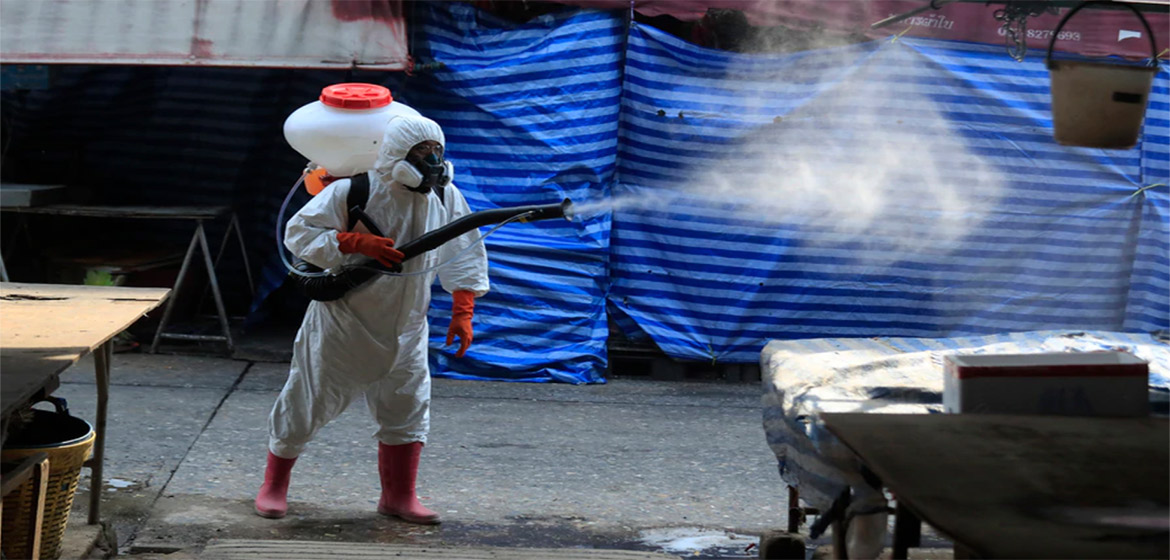By Ralph Jennings
TAIPEI - Stay-home orders in the Philippines didn’t work for lower-class people who rely on short term jobs for family income. They went out in 2020 despite the pandemic and despite the rules. Eventually tens of thousands were arrested and jailed in conditions that raise their risk of getting sick.
In Thailand, citizens worried about the pandemic’s impact on their signature tourism and export industries have protested the government, even the king. Neighboring Malaysia has excluded migrants and refugees from COVID-19 relief programs.
These are just a few examples from Southeast Asia cited by international advocacy groups last year. They tell a broader story: COVID-19 outbreaks worsened human rights issues on much of the subcontinent.
Southeast Asia, made up of more than 650 million people spanning 11 countries, is dominated by young democracies that took strict action against COVID-19 last year while scrambling to reset fragile economies. Human rights took a hit, said Phil Robertson, deputy Asia director at the New York-based advocacy group Human Rights Watch.
“We continued to see the situation bump along the bottom in many of the countries in Southeast Asia,” Robertson said. “And what happened with the COVID-19 pandemic is that it was like a real searchlight that highlighted inequalities and vulnerability of various different populations.”
The pandemic allowed countries to “reinforce” existing policies and orders targeting dissidents, he added.

People line up to pay at a supermarket, amid the coronavirus disease outbreak in Kuala Lumpur, Malaysia, Jan. 12, 2021.
Malaysia, Myanmar, Thailand
Malaysia’s effort to contain its COVID-19 had a “disproportionate impact on marginalized communities,” Human Rights Watch said in a country report released last week. Migrants and refugees who had lost their jobs because of the outbreak were “excluded from government aid programs, and many were left unable to feed their families”, the report says.
Of Malaysia’s 31.5 million population, more than 3.5 million people are migrants and refugees.
Across the subcontinent in impoverished Myanmar, health services have missed “large parts of the population,” especially in the countryside, the nonprofit international development group Asia Foundation says in an August 2020 briefing.
Some of these overlooked people are relying instead on armed rebel groups for aid, the foundation’s report says. Healthcare focuses mainly on the dominant Bamar Buddhist rather than other groups, it adds. The country covers 135 ethnic groups, including the restive Muslim Rohingya population in the country’s western regions.
Authorities in Singapore fostered anti-immigrant sentiment by isolating migrant workers who carried the coronavirus and feeding them “meals ready to eat,” Robertson said.
A wave of protests in Thailand against the government took on COVID-19 overtones, too. Thailand had brought its coronavirus outbreak under control last year, with just 12,594 cases total to date, but some among the thousands of demonstrators who started gathering in July said bans on mass assembly -- including protests themselves -- were too strict.
Some people even criticized the king despite lèse-majesté laws that can land a critic in prison for 15 years for their comments, policy advisory body the International Crisis Group says.
“The sharpest economic shock since the 1997-1998 financial crisis will strain a society simmering with discontent and a political order designed to thwart popular political participation,” the group said in an August report. Thailand faces a lack of international tourism and fallen demand for automotive exports.
More crackdowns in the Philippines
Passengers wearing hazmat suits for protection against COVID-19 walk through the Ninoy Aquino International Airport in Paranaque, Metro Manila, Philippines.
Philippine authorities added strict stay-at-home measures last year to other means of stopping antigovernment activity, rights groups and people in the country say.
Poorer people in Metro Manila go outside to beg for money or look for work if they have lost jobs due to business shutdowns. Some used to be fish vendors and drivers of jeepneys, a popular form of public transit, said Maria Ela Atienza, political science professor at the University of the Philippines Diliman. They risk getting detained, she said.
President Rodrigo Duterte, who is known for a deadly anti-drug crackdown since 2016, has told soldiers and neighborhood leaders to shoot “troublemakers” who protest during community quarantine, U.S.-based rights advocacy group Amnesty International said on its website in April. A “prevailing climate of impunity” increased killings of activists last year over political views, Amnesty International says.
“You have this very militaristic, traditional security-centered approach to the pandemic instead of having civilian scientists and experts leading the fight against the pandemic,” Atienza said.
Police officers in charge of enforcing stay-at-home orders have committed “a lot of abuses,” said Renato Reyes, secretary-general of the Manila-based Bagong Alyansang Makabayan alliance of leftist causes. Armed forces stepped up “counterinsurgency” attacks last year and targeted people suspected of supporting an armed communist movement, he said. An anti-terrorism act signed in July makes any attacks easier, rights groups say.
“Legal instruments, the lockdown, taking advantage of the pandemic and the increased counter-insurgency operations, all of these things contributed to the worsening and deterioration of the human rights situation in the country,” Reyes said.
Source:
Related to SDG 16: Peace, justice and strong institutions



